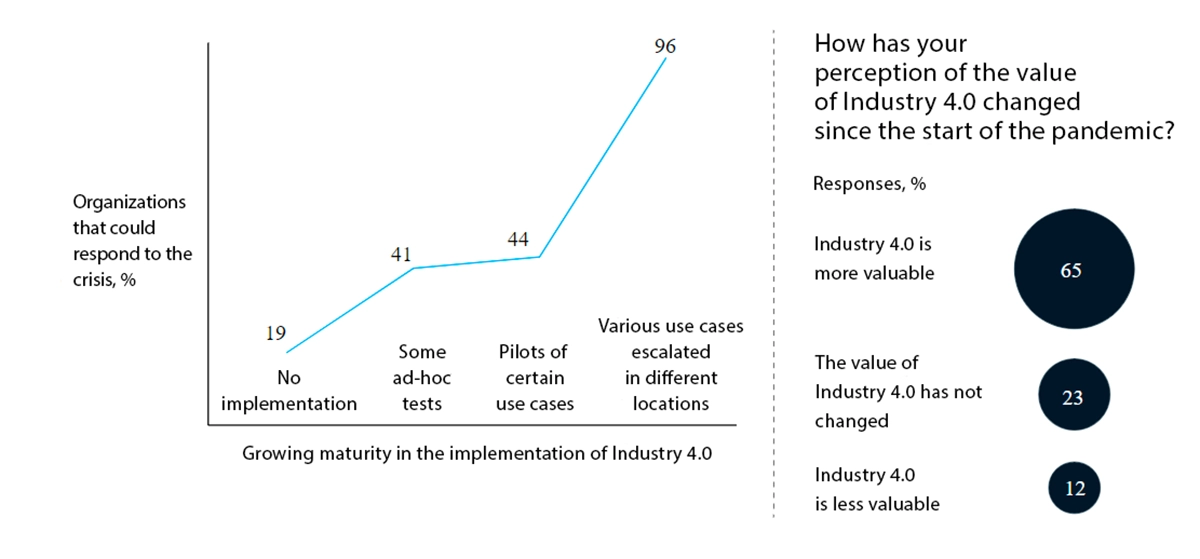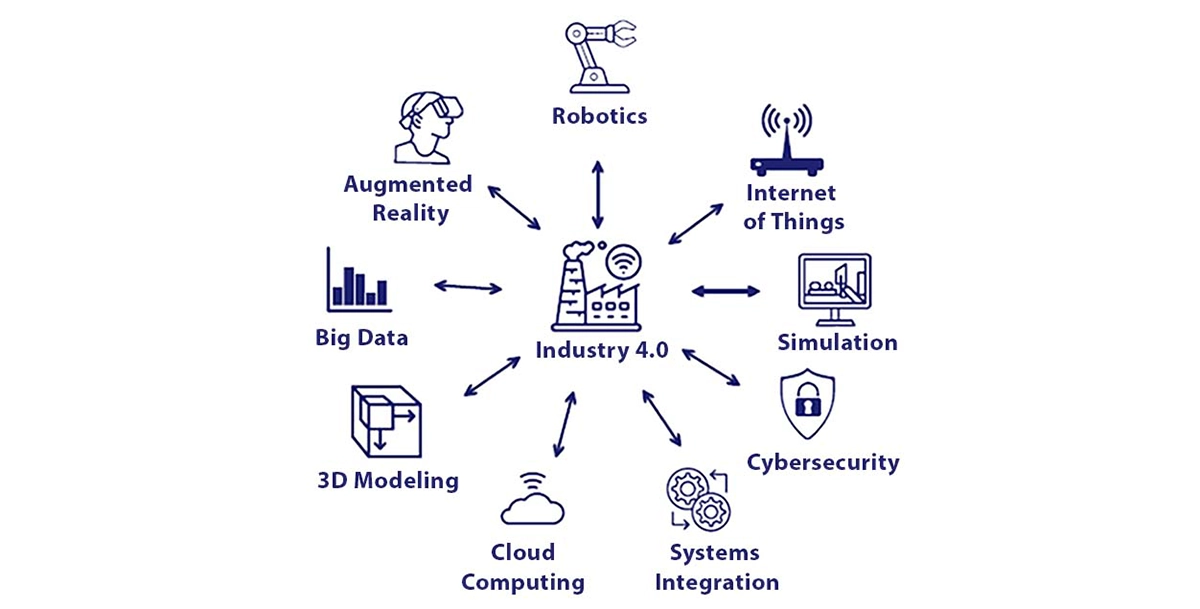Trends
Trends
SEP
06
2021
Private Networks
A 5G OpenLab for the industry of the future
“The main objective of this first Private Networks 5G Open Lab in France is to use connectivity to work on the challenges of the industry of the future, for greater efficiency and productivity. This 5G Lab will be a place for research, collaboration, innovation and experimentation accessible to any companies that want to use it”, says Marc Lovighi, Private Networks Sales Manager of Cellnex France.
2020 highlighted the importance of connectivity, technology and collaboration as key aspects helping society to face the most unexpected challenges. The health and economic crisis caused by the pandemic also put Industry 4.0 and industrial digitisation to the test to protect people and businesses.
According to a recent study from McKinsey & Company, economies with a more mature implementation of Industry 4.0 were better able to position themselves and to adapt in response to the Covid-19 crisis.
Source: Covid-19, an inflection point for industry 4.0, McKinsey & Company.
Companies and technology experts have also used their knowledge to mitigate the impact of the situation and find solutions. For its part, Cellnex is working on several projects to enhance the collaboration of the entire industrial and technological ecosystem, from large corporations to technology centres and start-ups, to develop solutions for the real needs of citizens and the business community.
Through Edzcom —a subsidiary of Cellnex specialised in private network solutions for companies in industrial environments— they are working on the latest technology in private communications networks to speed up the digitisation of companies and industries to ensure seamless connectivity, efficiency and maximum security.
Speeding up innovation in Industry 4.0 and Biopharmaceuticals
This context, with the pandemic acting as a catalyst, has led to the emergence of the project for the MGA TechLab 4.0, the collaborative innovation platform of the MGA Technology company specialised in the design and production of custom machines for biopharmaceuticals and industry 4.0. Together with Cellnex France and Edzcom, the first 5G Industry 4.0 and Biopharmaceutical Open Lab seeks to test use cases and accelerate the implementation of this technology in industry, particularly in pharmaceuticals.
This is because we have seen how preparing companies for this revolution is essential to foster new economic models. This revolution is characterised by the emergence of new technologies such as advanced robotics, additive manufacturing, the Internet of Things (IoT), cybersecurity, Big Data, Cloud Computing, augmented reality (AR), simulation and systems integration.
In the words of Loïc Besnard, Country Commercial Director of Cellnex France, in addition to deploying new solutions for the pharmaceutical industry, this 5G Lab “is also a great opportunity for Edzcom to showcase all of its experience in private networks and to encourage other industries and manufacturing companies to roll out advanced use cases that will benefit the whole innovation ecosystem”.
5G, the driver of industry 4.0
Regarding the role played by 5G in the evolution of the Lab, Hervé de Malliard, CEO of MGA Technologies comments that “Industry 4.0 is the industry of the future and 5G is at the centre of this scenario because it enables systems and machines to communicate autonomously and at unprecedented speeds”.
5G technology will enable new economic, use, business and service models and will overcome physical and geographic limitations. Industrial and service competitiveness in Europe will depend on the development of private 5G networks, and projects to boost their deployment are therefore essential.
Some examples of 5G labs already exist, such as the one created in Rennes by SNCF, however the MGA TechLab 4.0 project is launching the first Open 5G Private Networks Lab at the best industrial region in France.
The collaborative industrial innovation platform, covering an area of 800m2 and open to the entire MGA Technologies ecosystem, will thus become a meeting point of two types of knowledge: connectivity and automation.


















